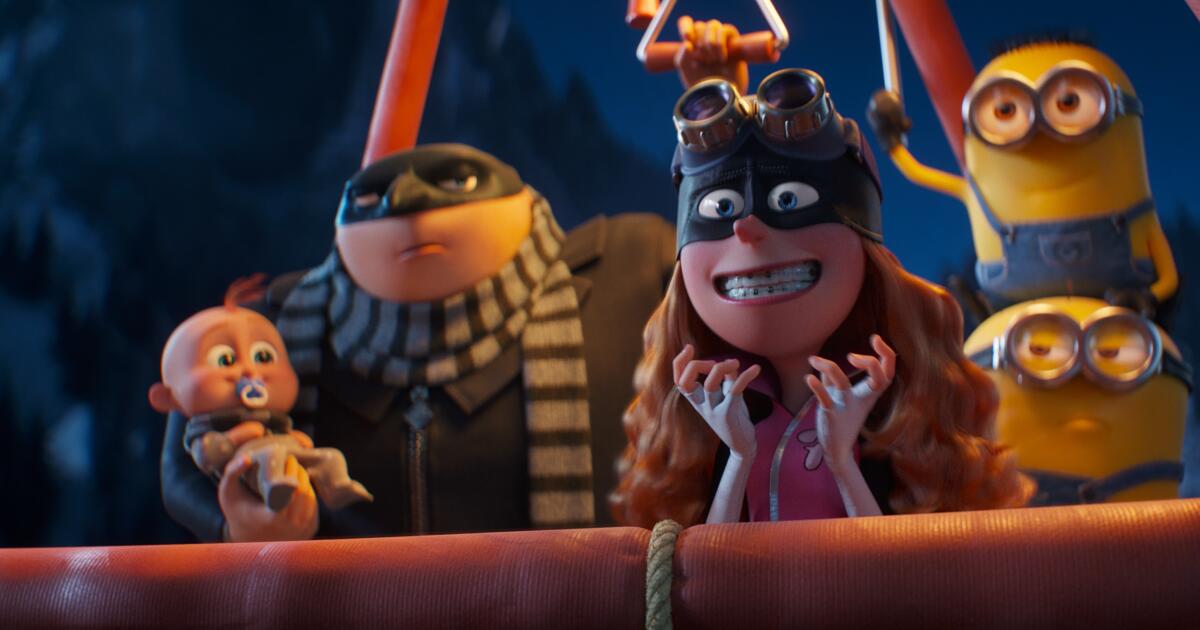In recent industry news, three of Hollywood’s most prominent studios—Walt Disney Co., Universal Pictures, and Warner Bros. Discovery—have taken legal action against a Shanghai-based artificial intelligence firm called MiniMax. This lawsuit, filed in U.S. District Court in Los Angeles, highlights the growing tension between the entertainment industry and AI technologies that are perceived to undermine core intellectual property rights.
Overview of the Lawsuit
The lawsuit targets MiniMax’s AI service, Hailuo AI, which allegedly generates images and videos of iconic characters such as Darth Vader, the Minions, and Wonder Woman without obtaining the necessary permissions from rights holders. In their complaint, the studios assert that MiniMax’s actions represent a blatant disregard for U.S. copyright laws and pose a significant threat to the integrity of the American motion picture industry. They argue that such practices not only infringe upon their copyrights but also jeopardize the livelihoods of the creative professionals who contribute to the magic of movies.
The studios seek damages up to $150,000 for each instance of infringement, coupled with attorney fees and costs. The lawsuit is a stark reminder of the broader challenges facing Hollywood as it grapples with the rapid advancement of AI technologies capable of replication and creative generation.
Contextualization of the Issue
This lawsuit is part of a continuing trend in which major studios are increasingly vigilant about protecting their intellectual property amidst a rising tide of technology that can mimic or reproduce creative content. Just months earlier, Disney and Universal Pictures initiated legal proceedings against another AI firm, Midjourney, citing similar concerns over copyright infringement. Warner Bros. Discovery has also joined this legal battle against Midjourney, reflecting a collective worry among studios about AI’s potential to disrupt traditional creative processes.
Actors and writers, who are still reeling from the effects of labor strikes in 2023, express anxiety that AI could further destabilize the industry, potentially replacing human creativity with machine-generated content. The fear is palpable: as AI technologies evolve, they may produce not only images but also entire videos featuring beloved characters, similar to movies and television shows, thus risking job security for actors and creatives.
The Technical Front: Hailuo AI
MiniMax markets its Hailuo AI as a "Hollywood studio in your pocket," allowing users to input text prompts to generate high-quality images or videos of popular characters. Such capabilities not only infringe on copyrights but also pose ethical questions about the ownership of creative work. The studios contend that MiniMax’s disregard for intellectual property exemplifies a broader trend where technology companies might exploit creative assets without compensation or acknowledgment to the original creators.
The complaint states, “MiniMax treats Plaintiffs’ valuable copyrighted characters like its own,” emphasizing the urgency with which these companies are approaching the issue. They express that the rapid advancement of AI could lead to unauthorized video generation that mirrors the quality and creativity of established works, further blurring the lines of copyright.
Industry Response and Future Considerations
The legal actions taken by these studios point to a pivotal moment in the relationship between Hollywood and emerging technologies. While some organizations see AI as a potential threat, others are exploring partnerships to leverage AI for improving production efficiency. For instance, Lionsgate’s collaboration with AI startup Runway reflects a growing acknowledgment that, while AI poses risks, it also offers opportunities for enhancing technical processes, such as storyboarding.
The contrasting responses within the industry highlight a complex landscape. On one hand, studios feel a pressing need to guard their creative assets aggressively; on the other, there is an opportunity to embrace AI to streamline production and increase efficiency. In this battle, a delicate balance must be struck to ensure that technological progress does not come at the expense of creative integrity.
Conclusion: The Implications for Hollywood
As this lawsuit progresses, it may set important precedents regarding copyright law and the use of AI in creative industries. As AI continues to advance, companies like Disney, Universal, and Warner Bros. Discovery will likely strengthen their legal frameworks to combat potential infringements. The potential for AI to infringe on copyrights necessitates rigorous discourse on how to ethically and effectively harness technology without stifling creativity.
The broader implications for Hollywood extend beyond just legal battles; they point to a fundamental transformation in how media is created and consumed. As technology evolves, the narrative around intellectual property will undoubtedly shift, compelling studio executives and creatives alike to re-examine traditional notions of ownership and authorship.
For the industry to thrive, it must adapt to these changes while finding ways to protect its core creative assets. The intersection of AI and intellectual property raises important questions that will shape the future landscape of entertainment. As this case unfolds, all eyes will be on its outcomes—both for the precedent it sets and for the conversations it will spark regarding the role of AI in creative industries.


:max_bytes(150000):strip_icc():focal(739x219:741x221)/dakota-fanning-sister-elle-091625-a49ff2dd41b944e0b82e3c8fed99bc4c.jpg?w=150&resize=150,150&ssl=1)
:max_bytes(150000):strip_icc()/GettyImages-2235062956-5b435339a3a24a1495e8c4d1c6c1eeac.jpg?w=150&resize=150,150&ssl=1)





